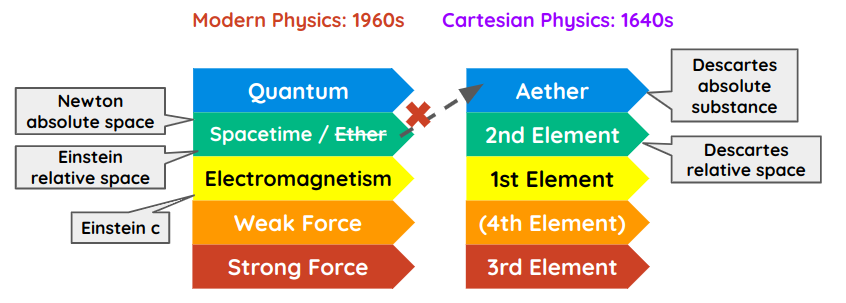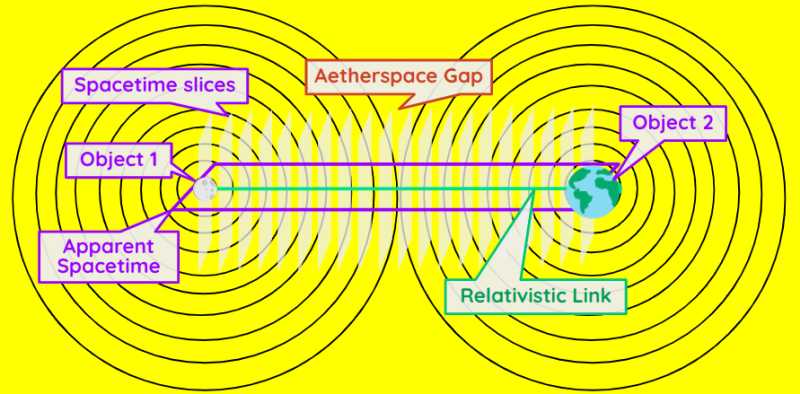How to Fix Einstein's General Relativity
Table of Contents
| Principle | Assertion |
|---|---|
| Spacetime is superior to Electromagnetism | Einstein’s General Relativity is wrong, not incomplete |
While collating the works of Socrates in order to unify them with those of David Hume to harmonize Superphysics, I came upon his maxims on astrophysics:
The spangled heavens should be used as a pattern and with a view to that higher knowledge. Any geometrician who saw them would never think that there is a true equal, true double, or true proportion in the spangled heavens. Likewise, a true astronomer..will never imagine that the proportions of night and day, the stars to one another are eternal and subject to no deviation.
Socrates
Simple Republic by Plato, Chapter 7
Socrates is clearly against having any fixed ratio or absoluteness in the universe. This obviously debunks Newtonian Physics which has an idea for an absolute space:
Absolute space has no regard to anything external. It remains always similar and immovable.
Newton
Principia, Scholium
However, he also mentioned that light (through sight) is not the measure of cosmic objects:
The starry heaven is wrought on a visible ground. The most perfect of visible things is far inferior to the true motions of absolute speeds which are relative to each other. They carry with them that which is contained in them. These are to be apprehended by reason and intelligence, but not by sight.
Socrates
This also debunks Einstein’s Relativity wherein light is an essential component:
[The unity of the two postulates of relativity and c] led to the Lorentz transformation instead of the Galilei transformation of classical mechanics. The constant speed of light played an important part in this.
Einstein
Relativity, Section 14
Therefore, the correct replacement to Newton and Einstein should:
- have no absolutes (i.e. be relative)
- work even without light (i.e. intellectually derived from patterns of data through space and time, not from a single visual observation)
Descartes to the Rescue
Before Einstein and Newton, Rene Descartes already explained how the universe worked through the 5 Elements which we can call as the true “Standard Model” of Physics in completed form.

Unlike Newton who viewed space as absolute, Descartes viewed space as relative:
I assert that all points are movable in the universe. From this, I conclude that nothing has a permanent place unless it is fixed by our thought.
Rene Descartes
Principia Philosophia, Part 2, Article 13
Superphysics Note
Like Einstein, he denied gravity coming from inside objects. But unlike Einstein’s Relativity which needed light, Descartes’ Relationality needed only 2 or more identities:
I deny the existence of gravity inside any body. Gravity is a quality that depends on the relations of situation and motion of several bodies on each other.
Rene Descartes
Principia Philosophia, Part 4, Article 202
In the view of Cartesian Physics, the biggest evils of Relativity are:
- It prevents artificial faster than light movement
- It prevents aether propulsion which uses subtle energy and far less crude energy
Let’s Fix General Relativity!
To get rid of these evils, let’s convert General Relativity (GR) to Cartesian. GR has field equations made up of 4 basic components:
- The Big Mass
- The Small Mass
- The Curvature around that Big Mass
- How the Small Mass goes through that Curvature

We convert this to Cartesian Relationality:

This eliminates the complicated Curvature and how the Small Mass goes through that Curvature. This eliminates 3-dimensional curved geometry and brings back 2-dimensional Euclidean geometry.
The resulting 2-dimensional Euclidean geometry forms 3-dimensional curved geometry when the object is traced along the plane or apparent space-time.
The ratios between the 2 objects while being traced within the plane are notated through Francis Bacon Tables. These can then project the future positions of the object/s even if both are moving.
The combination of Descartes and Bacon lead to a simpler and more robust way to plot the movement of objects going very fast. More importantly, light is not critical to this system.
For example, we use it to plot the movement of:
- person twards disease in Medical Superphysics
- lover towards lover in Social Superphysics
- country towards prosperity also in Economic Superphysics
In the future, we can use it to plot or predict:
- the probablities of what a particle will decay into
- the movement of an object from location A to B using the aether
- the growth of plants from one height or quality towards another
Meets Socrates’ Requirements
Cartesian Physics meets Socrates’ requirements of:
- having no absolutes (i.e. be relative)
- working even without light
This is why it makes up most of Material Superphysics, with minor tweaks from the Asian sciences of Hinduism, Taoism, and Buddhism in order to explain how the physical universe works.
Updates
| Date | Update |
|---|---|
| Nov 2024 | Totally overhauled this article after formalizing Cartesian Relationality around Aug 2024. Instead of fixing General Relativity by replacing Einstein’s spacetime with the Cartesian 2nd Element, we replaced it with Cartesian Relationality |